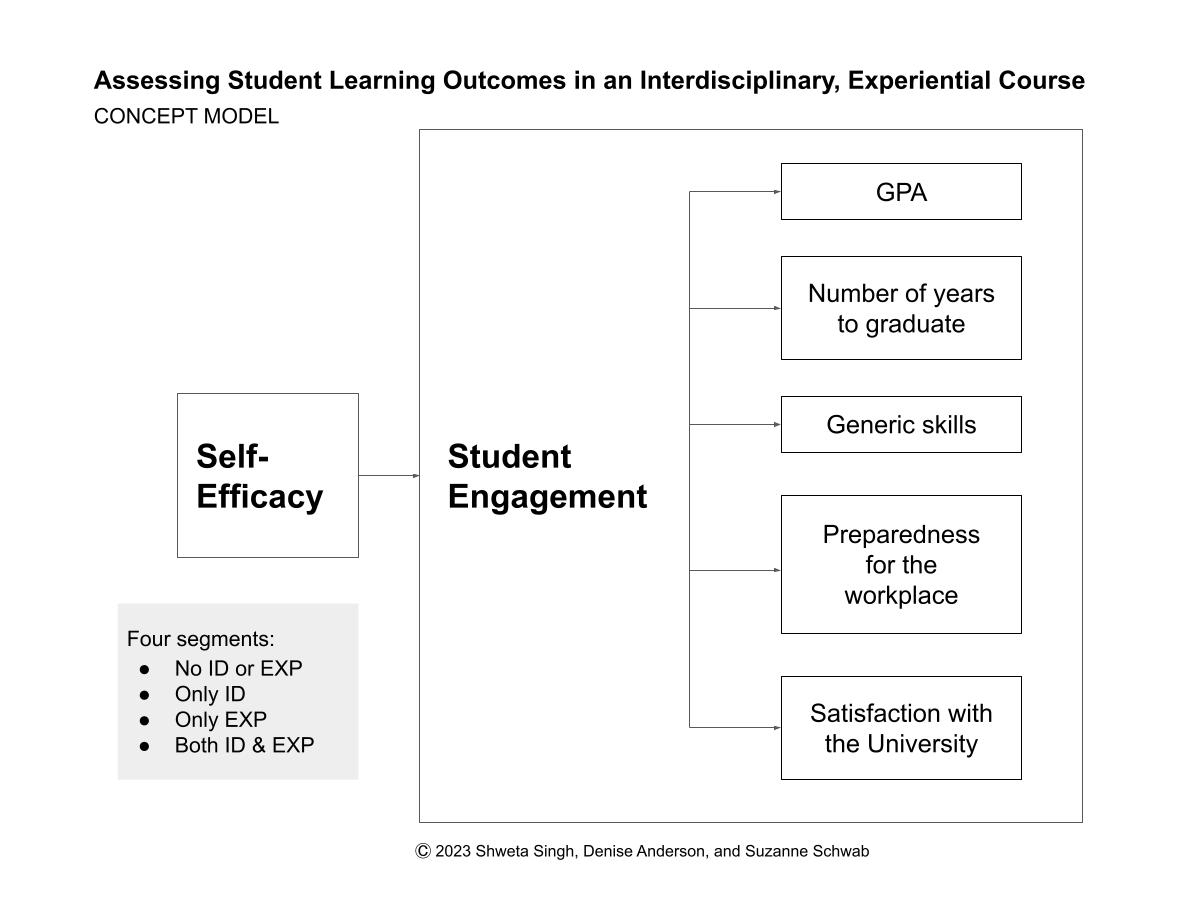Denise Anderson
Assistant Professor
Kean University
This research project is inspired by co-teaching an interdisciplinary, experiential course with three professors and thirty-three students in Graphic Design, Marketing, and Communication, with a partnership with the New York Jets as a client. Using survey data from students in the course and other college students pursuing their undergraduate degree, we develop a conceptual model and empirically examine the impact of interdisciplinary studies, participating in experiential learning, and the role of student demographics on student learning outcomes.
Interdisciplinary studies refer to studies between two or more fields of study and involve students working in an environment transcending disciplinary boundaries. Experiential learning refers to learning through hands-on experiences, where students apply the theories learned in the classroom to real-life situations using higher-order thinking.
Factors that affect student learning outcomes in higher education have been identified as lacking knowledge in other disciplines (Fruchter and Emery, 1999) and working with an actual client (Coker et al., 2017). Other factors include effective team collaborations (Machemer and Crawford, 2007), student engagement (Kuh et al., 2008; Letterman and Dugan, 2004), motivation (Pintrich and DeGroot, 1990; Deci et al, 1999), study habits and strategies (Dunlosky et al, 2013; Kember and Kwan, 2000), to name a few.
The proposed research will support the important role of interdisciplinary studies and experiential learning in achieving favorable student learning outcomes. In addition, it will provide empirical support for Universities to offer more interdisciplinary courses and experiential learning opportunities to retain students and prepare them for professional practice.
This design research was presented at Design Incubation Colloquium 10.2: Annual CAA Conference 2024 (Hybrid) on Thursday, February 15, 2024.
